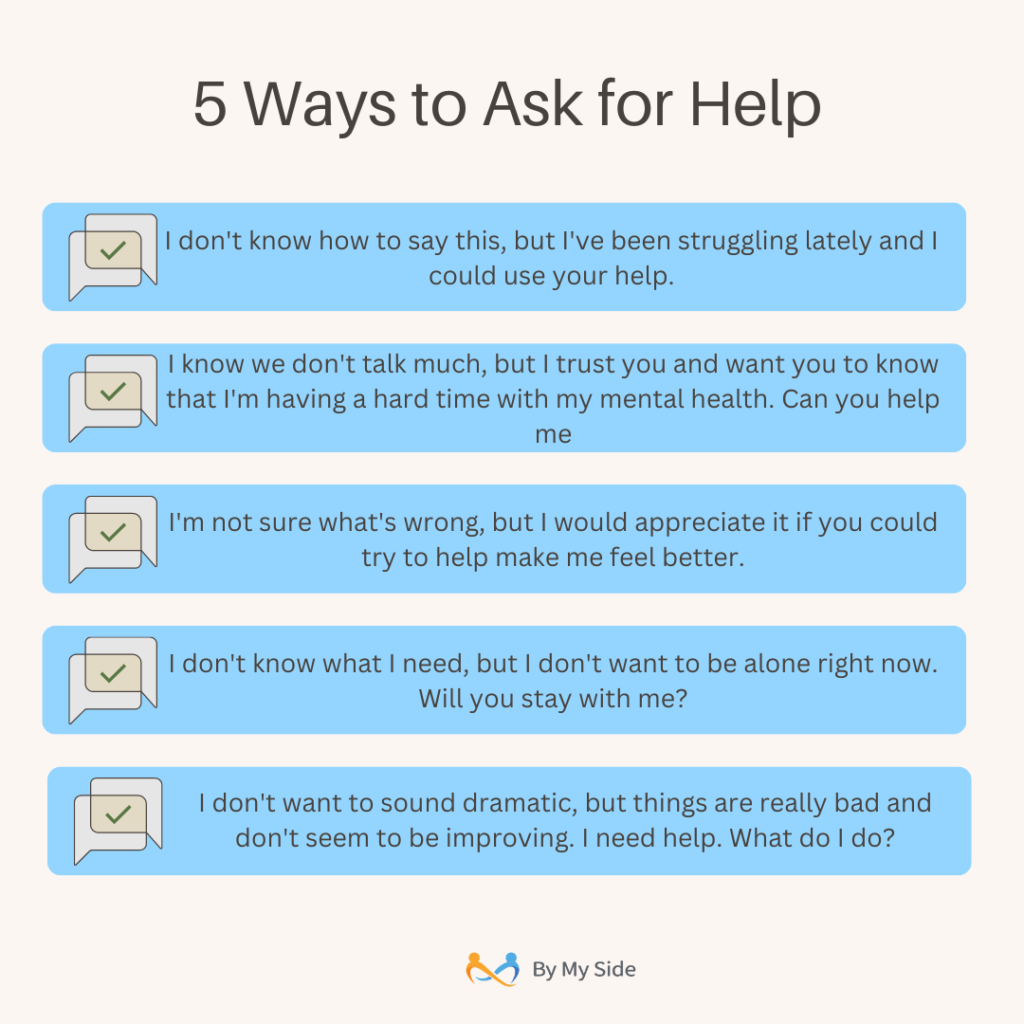Asking for help when we’re struggling is one of the hardest things people can do. It’s hard to admit we’re vulnerable, for one, but it’s also difficult to find the words to voice our insecurities, especially when there aren’t many people we’re close to. This guide will introduce a few ways you can ask for help through struggle, no matter what’s making it hard.

1. “I don’t know how to say this, but I’ve been struggling lately and I could use your help.” This is the basic, tried-and-true method that’s serious, but not overly confrontational. It’s best for caregivers and people we’re close to, but who maybe aren’t well-versed in mental health discourse. It’s an easy way to admit that you don’t know what to say, and saves both parties the anxiety of trying to mince words.
2. “I know we don’t talk much, but I trust you and want you to know that I’m having a hard time with my mental health. Can you help me?” This tactic is ideal if you don’t feel like you have people on your side who are automatically willing to assist you. Close friends and family are a luxury not given to everyone, but that isn’t a reason to keep your pain inside. Try this comment with a teacher, classmate, or coworker–it might get you farther than you think.
3. “I’m not sure what’s wrong, but I would appreciate it if you could try to help make me feel better.” Living with a mental illness, particularly a mood disorder like depression, means that we can’t always pinpoint why we feel the way we do. This is also common of teenagers or people with emotional dysregulation. When you don’t know why you feel bad, it can be particularly difficult to ask for help, but that shouldn’t stop you. Preface a basic request like this with “I can’t tell you why I feel bad” to keep the focus on getting assistance and not why you might need it.
4. “I don’t know what I need, but I don’t want to be alone right now. Will you stay with me?” Even if you do know what’s wrong, you might not know what you can do to fix it. This comes with practice, and the longer we struggle with a problem, the better we learn to manage it. However, that doesn’t help in the short term, so don’t be afraid to voice to others that you need something, but you’re not sure exactly what. The right kinds of people will give you options and help you find out what you need.
5. “I don’t want to sound dramatic, but things are really bad and don’t seem to be improving. I need help. What do I do?” For most people, it’s an instinct to not draw attention to our struggles and to pretend like everything’s fine. Even when we do need help, it’s not always easy to illustrate the severity of our problem, particularly if it is very serious or urgent. Still, let your gut guide you when you feel like you’re at your breaking point: ask for help. Your mind knows when it’s time to sound the safety alarm, and it’s warning you for a reason. Trust it.
Even if it’s hard or you’re not quite sure how; even if you feel like you’re making a big deal out of nothing; even if you want to brush it off and tell yourself you’re fine, it is crucial to your personal well-being to learn to ask for help. This is a skill like any other, and while it will feel unnatural at first, it can be learned and improved with time.
The importance of having help doesn’t just apply to mental health, either: our friends are here to help us, the same way we’re here to help them. Mutual assistance is what humanity is all about, so don’t be afraid to ask for help when you need it and check in with others about what they might need. Remember: vulnerability is a strength, not a weakness, and sometimes asking for help is one of the bravest things we can do for ourselves.
Author: Rose McCoy